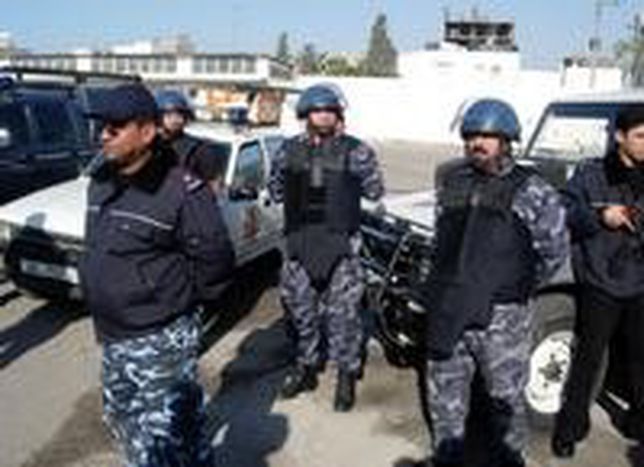
Palestine, EU to the rescue?
Published on
On 1 January, the EU launched its Police Mission for the Palestinian Territories, EUPOL-COPPS. This mission is of significant importance for the EU, as it will either assert or undermine its authority in the Middle East.
Since its establishment in 1994, the Palestinian Authority has been beset by problems. With this new mission, the EU has finally moved beyond financial aid by sending a police mission that will help to train Palestinian police, co-ordinate European police co-operation with the Palestinian Authority and advise them on criminal justice.
Always look on the bright side
For the Palestinians, this could be good news. The EU is already the largest financial donor to the Palestinians, but this mission is a demonstration of the EU’s willingness to take its role seriously and of its readiness to take direct responsibility in the Peace Process and in the establishment of a stronger Palestinian Authority. This, in turn, should lead to a more stable partner, able to negotiate a lasting peace with Israel. This is even more important now that Ariel Sharon, the 77-year-old Israeli Prime Minister, is incapacitated after suffering a major stroke and Deputy PM Ehud Olmert has assumed his powers.
As regards Europe, the police mission, which comprises 33 unarmed police personnel, is another example of a civilian mission in the framework of the European Security and Defence Policy (ESDP). The establishment of the ESDP in 1999 was feared by many as a new military direction for the foreign policy of the European Union. As such, this new civilian mission illustrates the fact that policy makers in the EU really take into account the importance of the civilian aspect of crisis management.
But don’t count your chickens
The EU, however, is well aware that in such a complex environment, failure in this mission would undermine the credibility of the EU as a global and regional player. This explains why the objectives set for the mission are relatively modest and build on the experiences already acquired in other EU police missions, for example in Bosnia and Herzegovina.
As illustrated by the goals given to its civilian ESDP missions, such as EUPOL-COPPS, the EU concentrates its efforts on institutions: police, rule of law, civil administration and civil protection. While these missions are important, as they are the basis for the existence of a peaceful, lawful state, the task of building bridges between communities or of reintegrating ex-combatants is left to NGOs. The delegation of this task is not a problem in itself, but it diminishes the responsibility of the EU in those areas of work, which can easily be forgotten in EU declarations and budget lines.
As such, EUPOL-COPPS is also an example of the limits of the European role abroad as it will not address the roots of the Israeli-Palestinian conflict. Rather than concentrating on just conflict prevention or crisis management, the EU should try ‘conflict transformation’, as advocated by many NGOs. In other words, rather than simply eliminating or controlling conflict, it needs to recognise and work with its dialectic nature and act with civil society to avoid escalation into violence.



